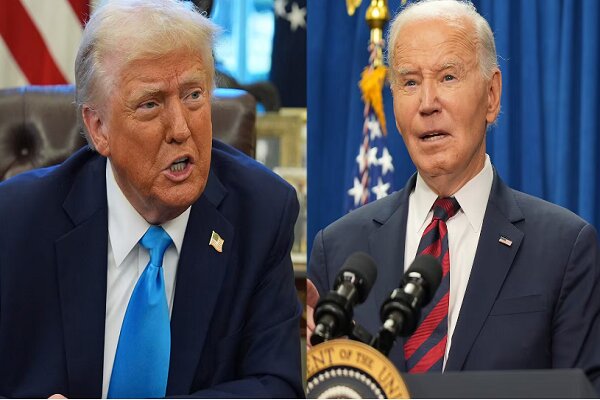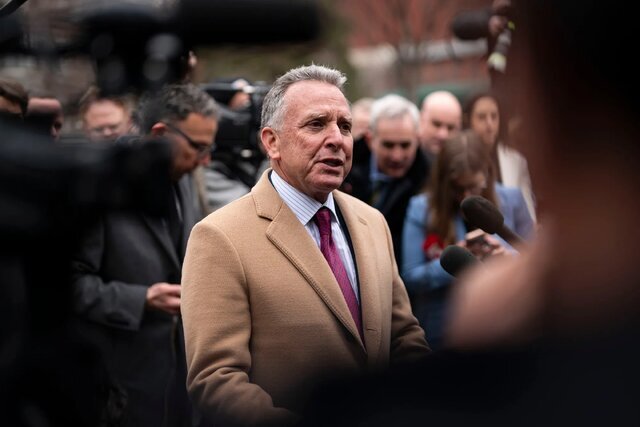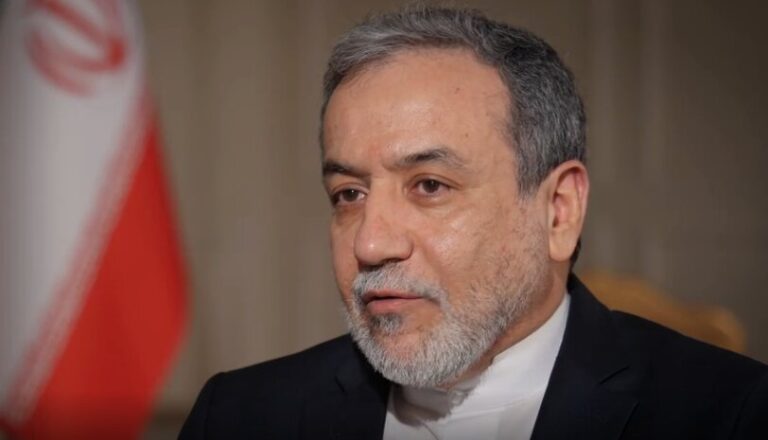Trump Cuts Biden’s Access to Key Intelligence Briefings: A Bold Move in National Security!
In a recent statement, former President Donald Trump expressed his views on the necessity of security clearances for President Joe Biden. Trump emphasized that there is “no need” for Biden to retain such clearances, a remark that comes in light of Biden’s previous revocation of Trump’s access to classified materials after his presidency.
Trump took to his Truth Social platform to share his thoughts, stating, “He set this precedent in 2021, when he instructed the Intelligence Community (IC) to stop the 45th President of the United States (ME!) from accessing details on National Security, a courtesy provided to former Presidents.” This statement underscores the ongoing tension between the two political figures, as they navigate the complexities of national security and classified information.
Moreover, Trump raised concerns about Biden’s reliability regarding sensitive information. This assertion was partly based on a report from special counsel Robert Hur, which highlighted Biden’s handling of classified documents and described his memory as “fuzzy” and exhibiting “significant limitations.”
- Hur’s investigation did not result in any charges against Biden.
- The report noted Biden’s struggles with recalling critical dates, including the death of his son Beau and his tenure as vice president.
Despite the controversy, Biden has remained silent on Trump’s comments. However, several former officials from Biden’s administration have criticized the former president’s remarks, indicating that the discourse surrounding security clearances and classified information remains contentious.
Interestingly, U.S. presidents do not need formal security clearances to access classified information; instead, they gain this access by virtue of their office. Traditionally, former presidents have been granted intelligence briefings upon request. However, it is important to note that this access is entirely at the discretion of the sitting president, and there is no established process for obtaining a security clearance.
In the aftermath of the January 6, 2021, Capitol riot, Biden expressed his belief that Trump should not have access to intelligence briefings. This decision stemmed from Trump’s actions to contest the results of the 2020 presidential election, a move that has continued to polarize the political landscape in the United States.
As the political atmosphere remains charged, the discussion surrounding security clearances and access to classified information is likely to continue. Trump’s remarks highlight not only his stance on Biden’s security clearances but also the broader implications of how information is handled among past and present leaders. The complexities of intelligence access are crucial for the integrity of national security, and as these discussions unfold, they will undoubtedly influence future protocols.
In conclusion, the debate over security clearances and the access to classified information remains a significant issue within U.S. politics. The actions and statements from both Trump and Biden reveal the underlying tensions and differing perspectives on the handling of national security. As this narrative evolves, it will be essential for citizens to stay informed about the implications for governance and national security moving forward.






